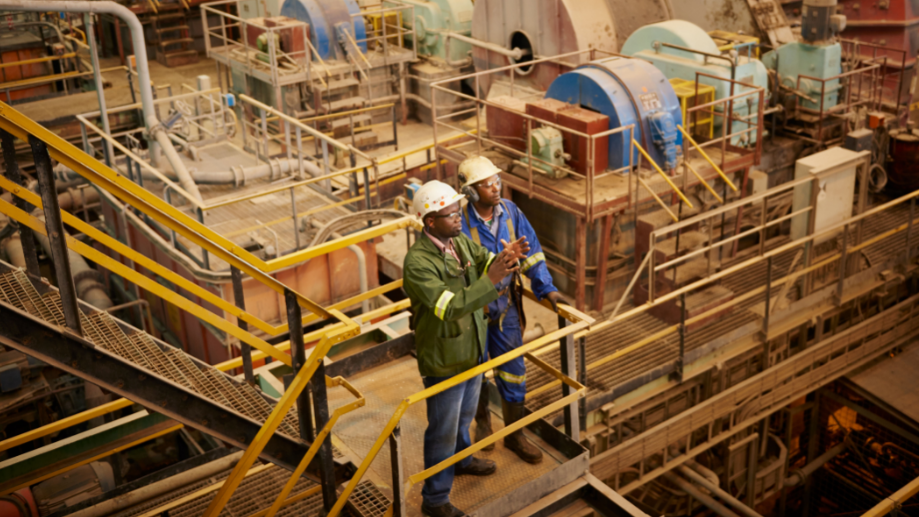Post-Export Ban: How Congo's Cobalt Quota Plan Will Reshape The Market

Table of Contents
The Democratic Republic of Congo (DRC), the world's leading cobalt producer, is implementing a new cobalt quota plan following a proposed export ban. This significant policy shift, known as Congo's cobalt quota plan, is poised to dramatically reshape the global cobalt market, impacting everything from electric vehicle (EV) battery production to the price of cobalt itself. This article delves into the implications of Congo's cobalt quota plan and its far-reaching consequences for the global economy and the future of sustainable cobalt mining.
Understanding Congo's Cobalt Quota Plan:
The Rationale Behind the Quotas: The DRC government's motivations for implementing quotas are multifaceted:
- Increased domestic processing of cobalt: The quotas aim to encourage the development of cobalt processing facilities within the DRC, adding value to the raw material before export and boosting the Congolese economy. This includes refining and smelting, reducing reliance on foreign processing plants.
- Revenue generation for the Congolese economy: By controlling the export of cobalt, the DRC government aims to capture a greater share of the profits generated by this valuable resource, funding crucial infrastructure projects and social programs. This contrasts with the current system where much of the profit leaves the country.
- Greater control over the cobalt supply chain: The quota system gives the DRC government more influence over the entire cobalt supply chain, from mining to processing and export, allowing for better regulation and monitoring. This is a key element in improving transparency and accountability.
- Environmental concerns and sustainable mining practices: The government hopes to use the quota system to promote more sustainable and environmentally responsible mining practices, tackling issues like artisanal mining and its associated environmental damage. This aspect is crucial for securing international acceptance and collaboration.
How the Quota System Works: The mechanics of the quota system are still being developed, but key aspects include:
- Allocation process for quotas among miners: The exact method for allocating quotas among different mining companies, both large-scale and artisanal, remains unclear, potentially leading to challenges and disputes. Fair and transparent allocation is vital for the system's success.
- Transparency and accountability mechanisms: Establishing robust transparency and accountability mechanisms is crucial to prevent corruption and ensure that quotas are fairly allocated and enforced. This involves clear reporting procedures and independent oversight.
- Potential for corruption and challenges in implementation: The complexity of the quota system and the potential for corruption are significant challenges. Robust anti-corruption measures and international collaboration are necessary to minimize these risks.
- The impact of artisanal mining within the quota system: Integrating artisanal miners, who represent a significant portion of cobalt production, into the quota system is a crucial but complex task. Finding a balance between formalization and support for artisanal miners while preventing exploitation is vital.
Impact on the Global Cobalt Market:
Price Volatility and Supply Chain Disruptions: Congo's cobalt quota plan is likely to have significant impacts on the global cobalt market:
- Short-term price increases due to supply constraints: Initially, the quotas may create supply constraints, leading to higher cobalt prices. This directly impacts battery manufacturers and the EV industry.
- Long-term effects on price stability: The long-term impact on price stability is uncertain. Successful implementation of the quota system and increased domestic processing could eventually lead to more stable prices.
- Increased reliance on alternative cobalt sources: Higher prices and potential supply disruptions could incentivize the development and use of alternative cobalt sources or battery chemistries.
- Impacts on battery manufacturers and the EV industry: The EV industry, heavily reliant on cobalt for batteries, faces significant challenges. Price volatility and supply uncertainty could affect production costs and timelines.
Geopolitical Implications: The quota system will have substantial geopolitical consequences:
- Strengthening of the DRC's position in the global cobalt market: The quota system gives the DRC more control over its cobalt resources, strengthening its bargaining position in international negotiations.
- Increased scrutiny of cobalt mining practices in the DRC: Increased focus on the DRC's cobalt sector will lead to greater scrutiny of its mining practices, human rights record, and environmental impact.
- Potential for trade disputes and negotiations: The quota system could lead to trade disputes and complex negotiations with other countries and international organizations.
- The role of international organizations in shaping cobalt policy: International organizations like the OECD and the EU will play a crucial role in shaping cobalt policy, promoting transparency and sustainability.
Opportunities and Challenges for Stakeholders:
Opportunities for Domestic Processing: The quota system presents significant opportunities for Congolese companies:
- Development of local refining and processing infrastructure: The quotas incentivize investment in local refining and processing facilities, creating a more diversified and resilient economy.
- Job creation and economic growth within the DRC: Developing the downstream cobalt sector creates numerous jobs and stimulates economic growth within the DRC.
- Attracting foreign investment in downstream cobalt processing: The potential for profit in the Congolese cobalt sector could attract significant foreign investment in processing infrastructure.
Challenges for International Companies: International companies face numerous challenges:
- Increased operational complexity due to quotas: Navigating the quota system adds complexity to operations, requiring more stringent planning and compliance procedures.
- Sourcing cobalt from more diverse and potentially less reliable sources: Companies may need to diversify their cobalt sourcing, potentially dealing with less reliable suppliers.
- Navigating regulatory hurdles and potential corruption risks: The regulatory environment in the DRC remains complex, and corruption risks persist, posing significant challenges for multinational companies.
- The need for greater transparency and sustainability across the cobalt supply chain: The increased scrutiny necessitates a greater focus on transparency and sustainability throughout the entire supply chain.
Conclusion:
Congo's cobalt quota plan marks a pivotal moment for the global cobalt market. While aiming to boost the DRC's economy and improve environmental sustainability, it also presents significant challenges for global supply chains and international stakeholders. Understanding the nuances of this plan – from its implementation mechanisms to its geopolitical implications – is crucial for all players involved. Staying informed on developments regarding Congo's cobalt quota plan is essential for navigating this evolving landscape and ensuring a sustainable and equitable future for cobalt production. Learn more about the complexities and potential impacts of Congo's cobalt quota plan by researching the latest developments and engaging in the ongoing industry conversations.

Featured Posts
-
 Steams New Free Game Excellent Reviews
May 16, 2025
Steams New Free Game Excellent Reviews
May 16, 2025 -
 Nikes Turnaround Gains Momentum Foot Locker Earnings Offer Insights
May 16, 2025
Nikes Turnaround Gains Momentum Foot Locker Earnings Offer Insights
May 16, 2025 -
 Tom Cruise Still Owes Tom Hanks A Dollar The Unpaid Acting Debt
May 16, 2025
Tom Cruise Still Owes Tom Hanks A Dollar The Unpaid Acting Debt
May 16, 2025 -
 San Diego Padres Pregame Report Lineup Matchup And Sweep Chances
May 16, 2025
San Diego Padres Pregame Report Lineup Matchup And Sweep Chances
May 16, 2025 -
 Be Lietuviu Boston Celtics Parduotas Uz Istorija Keiciancia Suma
May 16, 2025
Be Lietuviu Boston Celtics Parduotas Uz Istorija Keiciancia Suma
May 16, 2025
